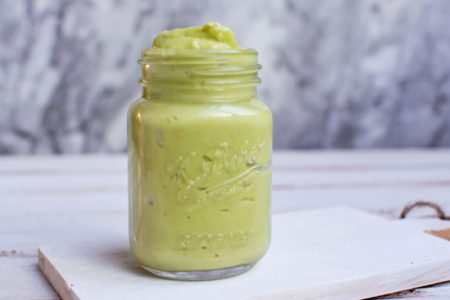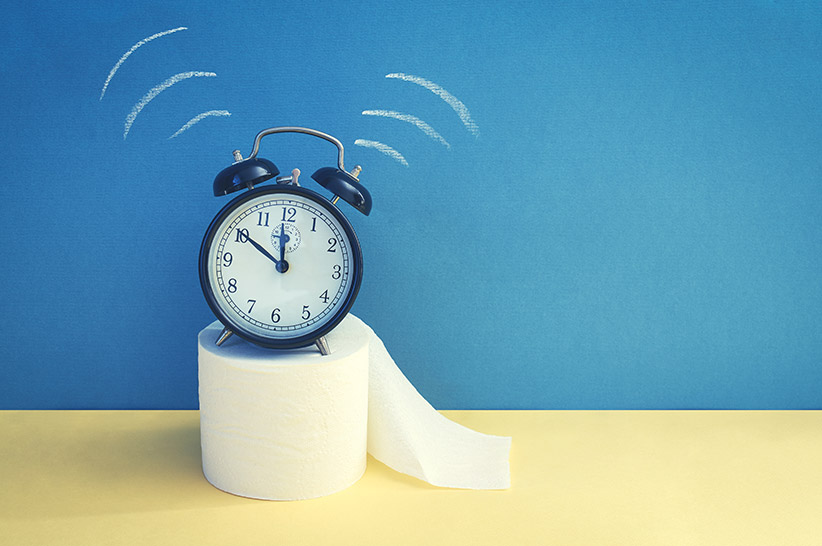The ketogenic diet can help you lose weight, improve your mental clarity, and boost your energy levels. But it’s not all sunshine and rainbows. The keto diet can also lead to uncomfortable side effects, and keto constipation seems to be a fairly common one.
The causes of constipation, in general, are wide and varied, but diet seems to play a huge role. A poorly planned keto diet can lead to nutrient insufficiencies and indigestion, all of which lead to constipation. But there are many other factors that play into keto constipation and which we discuss in this article.
Keep reading to learn what keto constipation is, what causes it, and how you can treat it.
What Is Constipation?
A common misconception is that you need to have a bowel movement every single day, otherwise you’re constipated. Normal bowel frequency is actually anywhere between three a day to two bowel movements a week 1.
Constipation is when you’re having difficulty passing stool in addition to having infrequent bowel movements. You can check whether you’re constipated by looking at the Bristol stool chart. If you are uncomfortable with the idea of looking at your own poop, then check for the following constipation symptoms.
- Abdominal pain and discomfort
- Bloating and abdominal distention
- Difficulty passing gas
- Hemorrhoids (with chronic constipation
If this is you, then you just may be constipated. Keep in mind, though, that these symptoms are fairly nonspecific and could be a sign of many other digestive and metabolic issues.
As far as the causes of constipation are concerned, there are many factors that can cause it. Lack of dietary fiber, too much fiber, poor fluid intake, inactivity, irritable bowel syndrome (IBS), thyroid disease, imbalanced gut flora, and even neurological problems can lead to constipation.
Can Keto Cause Constipation?
Any diet can cause constipation if it is deficient or imbalanced in certain nutrients. The same holds true for the ketogenic diet. But if your keto diet is well-planned, then you’re less likely to experience keto constipation and diarrhea, even. When you do develop keto constipation, it’s likely a result of one or more of the following.

Too much or not enough fiber
Increasing fiber intake is the first-line treatment for constipation no matter what diet you’re on.
Studies show that most adults following a typical Western diet are not meeting their daily needs for fiber 2. The recommended daily intake is around 25-30g a day, while the current average is below 20g a day.
Fiber is an indigestible carbohydrate that gives stool bulk, which makes it easier to pass. It also stimulates bowel movements and feeds friendly gut bacteria – all things important for normal bowel functioning.
But too much of it can also make you constipated according to some studies 3. So, if you’ve increased your fiber intake but are still constipated on your keto diet, make sure you are keeping fiber intake within the recommended daily limits.
Another important thing that many people fail to mention when talking about fiber is the importance of hydration. Soluble fiber absorbs water, forming a gel-like substance that helps with bowel movements. Without enough water, this type of fiber will not do much for your bowel health.
Low food intake
The keto diet is known for its appetite-suppressing effect, which makes you eat less. And while this can be a good thing when your goal is weight loss, it can also leave you constipated.
There are several reasons why a high-fat diet leads to lower food intake:
Fat is satiating
Fat can be quite satiating, and this is especially true with medium-chain triglycerides (MCTs), which are fats that are recommended on a keto diet.
Being in ketosis
Being in ketosis can also make you eat less due to the appetite-suppressing effect of ketone bodies.
Changes in blood glucose
The ketogenic diet leads to healthier blood glucose metabolism, helping stabilize blood glucose and insulin levels. This, in turn, can help regulate your appetite but may also lead to low appetite.
Not eating much reduces the frequency of bowel movements. This shouldn’t be a reason to worry unless you’re feeling uncomfortable and constipated. If that’s the case, then you may want to check if you’re eating enough.
Imbalanced gut flora
A healthy gut is home to billions of microorganisms.
These microorganisms keep the numbers of harmful bacteria and fungi low. They also help ferment fiber, produce short-chain fatty acids, make vitamins and enzymes, and support the immune system 4. These beneficial critters include different strains of bacteria such as Bacteroides and Bifidobacterium and the Candida yeast.
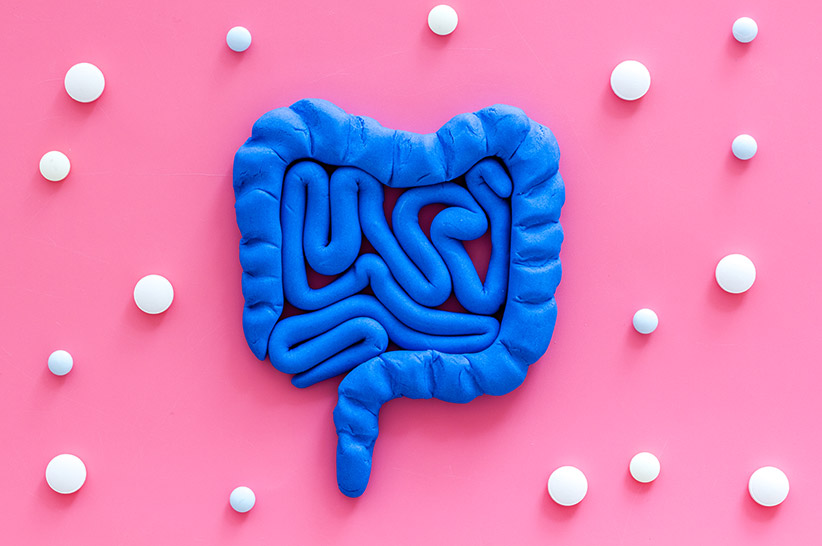
Friendly gut bacteria feed mainly on soluble fiber. If your diet is low in this type of fiber, the bacteria will starve, leading to something called dysbiosis, aka a microbial imbalance.
Dysbiosis leads to a range of digestive symptoms, and constipation is the most common one.
When lower fiber intake is combined with higher fat intake, it is most likely to lead to dysbiosis as found by animal studies 5. Besides constipation, microbial imbalances can also cause diarrhea and nutrient malabsorption.
The keto flu
The keto flu is a common side effect of going low carb. This set of flu-like symptoms usually happens during the induction phase of a ketogenic diet and includes headaches, fatigue, muscle cramping, brain fog, nausea, and keto bloating and constipation.
Keto flu happens because the ketogenic diet has a strong diuretic effect during its induction phase, meaning it makes you pee more. With increased urine output, you also lose electrolytes and this increases your risk of dehydration, and dehydration often leads to, you guessed it, constipation.
Other causes
Milk protein allergies, certain medications (codeine and antidepressants), inactivity, low thyroid hormones, and premenstrual syndrome (PMS) can all cause worsen constipation and even contribute to keto constipation.
What Helps Constipation on Keto Diet?
To know what will help treat keto constipation in your particular case, you need to get to the root cause. This can be a bit tricky. You may need to check with your doctor and see if an underlying health condition is contributing to your keto constipation. Other than that, try following these six simple steps to treat keto constipation.
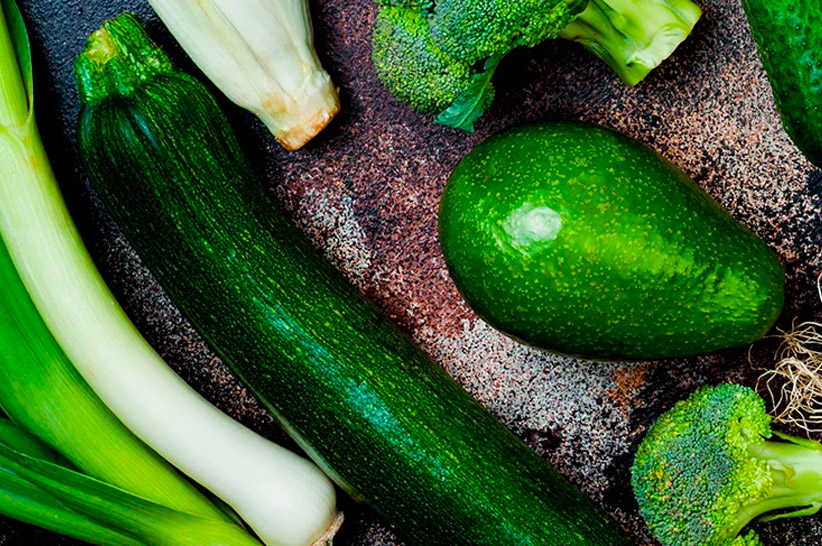
1. Balancing your fiber intake
Eating the right amount of fiber and drinking enough fluids can make a huge difference on your digestive health. Current guidelines recommend 25 to 30 grams of fiber per day, with special emphasis on soluble fiber.
On a keto diet, you can get plenty of soluble fiber from coconut flour, avocado, broccoli, almonds, celery stalks, peanut butter, flaxseed, and other keto diet food. You can also take fiber supplements like psyllium husk and methylcellulose.
2. Taking probiotics
Probiotics are live bacteria and yeast found in fermented food but also sold as supplements. Good sources include cultured yogurt, kefir, sauerkraut, and miso. Combining fermented food with fiber-rich sources boosts probiotic survival in the gut.
One large systematic review found that probiotic balance gut microflora and help normalize bowel functioning 6. The most common probiotic strains studied are Lactobacillus and Bifidobacterium. Some strains also occur in symbiosis with fungi, and you can find these in kefir and sourdough.
3. Eating more and staying hydrated
A lower calorie intake is necessary for weight loss, but you don’t want to take it too far. A modest calorie reduction of 300-500 kcal/day is all you need to initiate fat burning on a keto diet.
While keto can make you lose your appetite, you need to ensure you’re getting enough nutrients to maintain ketosis, good health, and, of course, normal bowel functioning. Try increasing your intake of low-carb, but high-fiber keto veggies, other keto-friendly food, and increase your fluid intake.
A good way to start is by planning your meals. Make sure all of your meals contain enough fiber when working on improving your bowel health. Diet apps can also help with this.
Also, drink different liquids throughout the day to get enough fluids. Water, tea, smoothies, and soups all contribute to your daily hydration levels. It’s best to take liquids together with meals to improve digestion.
4. Staying active
Studies show that one of the most common causes of chronic constipation in adults is inactivity 7. Inactivity reduces blood flow to your GI tract slowing down digestion. Physical activity, on the other hand, stimulates the digestive tract. That explains why being bedridden leads to constipation and why exercising often causes an intense urge to poop.
Current guidelines recommend 150 minutes of moderate aerobic activity every week for optimal health 8 and regular bowel movements. But you don’t have to limit yourself to aerobics. Any type activity that gets your heart pumping and your muscles working will do. This includes weight lifting, yoga, and high-intensity training.
5. Eliminate allergens
Keto dieters often find that limiting dairy helps with keto constipation. A probable cause could be allergies since research shows a strong link between chronic constipation and cow’s milk allergies 9, 10. Milk allergies lead to inflammation inside the intestines preventing normal functioning.
Besides milk, other common allergens include eggs, peanuts, tree nuts, soy, seafood, and wheat. Note that many of these foods are high in protein, which makes sense given that good allergy is, by definition, an adverse reaction to food proteins. Try excluding different protein foods at different times and see if you could track a possible allergy. But a more reliable method, of course, is scheduling an allergy test.
6. Treating the keto flu
The keto flu is a common cause of short-term constipation on a keto diet. But even if it’s short-lived, keto constipation can be very uncomfortable. That’s why you need to treat it, and the best way to treat it is by drinking enough fluids, taking electrolytes supplements, and getting plenty of rest.
Does Eating Low Carb Make You Constipated?
Going low carb, in and of itself, will not make you constipated. A low-carb diet can still provide enough fiber, fluids, and probiotics that help with normal bowel movements and the maintenance of healthy gut flora.
The problem with eating low carb is that it makes meeting fiber needs more difficult as it excludes many fiber-rich foods like whole grains, legumes, and starchy fruits and vegetables. Low-carb diets that are high in fat such as keto can also lead to an imbalanced gut flora duet to higher fat intake. And as already explained, going low-carb leads to the keto flu that lists constipation as a leading symptom.
How Do You Avoid Constipation on a Low-Carb Diet?
One sure-fire way to avoid keto constipation is by planning your diet well.
For example, aim for 3-5 servings of low-carb vegetable and keto-friendly fruit to meet your daily needs for fiber. This will help maintain healthy gut bacteria and support bowel motility. Include healthy MUFAs as these are less likely to cause dysbiosis. With time, your body will also start producing more fat-digesting enzymes, reducing the amount of undigested fat reaching your colon.
Dehydration from keto induction is also easy to prevent by staying hydrated and taking electrolytes. Some dieters also try to reduce their carb intake gradually to make transitioning to keto easier and side-effect free.
There are also foods and products that can help you control constipation on a low-carb diet such as:
Magnesium-rich mineral water
These are defined as having a magnesium content greater than 50 mg/l. Magnesium relaxes the bowels and pulls water into your intestines which helps relieve constipation. But if you take too much magnesium (more than 400mg), you could get diarrhea. Moderation is key when it comes to magnesium-rich water in preventing keto constipation.
Keto smoothie for constipation
Make fiber-rich smoothies a part of your daily diet. Using avocado as a base ingredient boost the fiber content of keto smoothies, but you can also make them with spinach, kale, peanut butter, and other fiber-rich ingredients. Optionally, you can add MCT oil to help fight intestinal inflammation and balance out gut flora.
Conclusion
Keto constipation is a common problem for keto dieters. Luckily, it’s easy to avoid and treat once you get to the root cause. From eating too much or too little fiber to lack of physical activity and food allergies, there are many causes of keto constipation. Finding out which one is the culprit in your particular case will help you address keto constipation successfully.
Try following our easy tips and tricks and see what works for you. The keto diet being restrictive in carbs means that inadequate fiber intake is the likely cause of your keto constipation. Boosting your fiber intake through low-carb keto plant foods or supplements. Drinking water and staying active also helps.
If you’ve tried everything and nothing seems to help, you may need to ask your doctor for help. Constipation lasting longer than a week likely won’t resolve on its own. Besides that, it puts you at risk of complications.




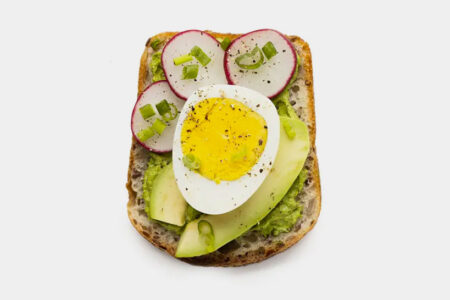
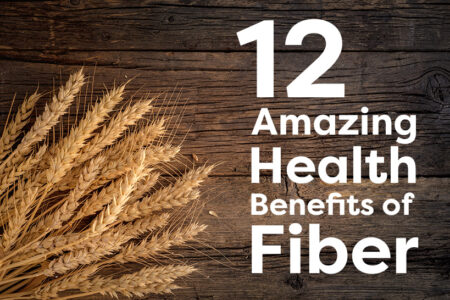




![Juicing for Weight Loss: Everything You Need to Know [Plus Recipes]](/wp-content/uploads/2019/08/Juicing-for-Weight-featured-image.jpg)



